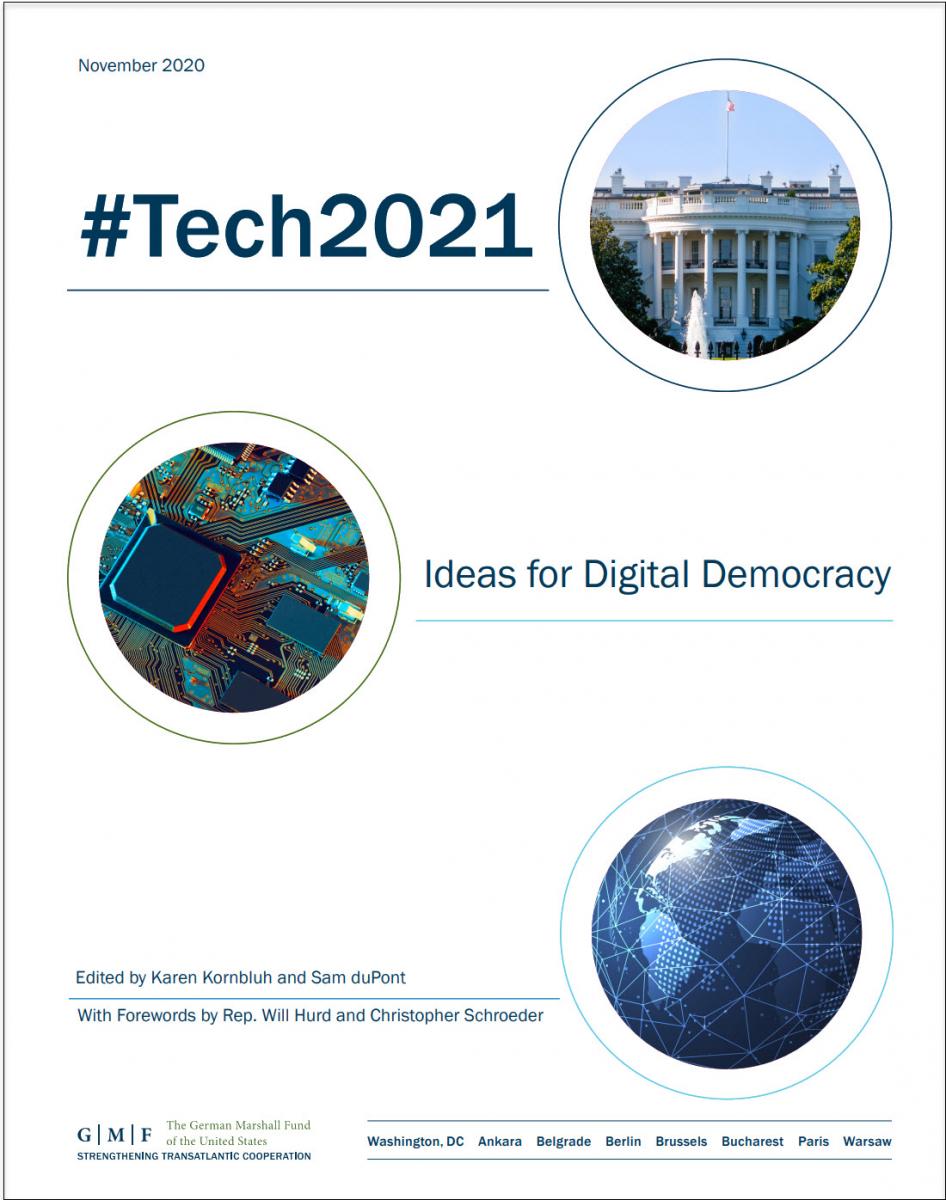#Tech2021 - Foreword by Christopher Schroeder
 I am often asked about the most exciting developments in technology, and I like to cite the potential of artificial intelligence and data science, advancements in robotics and genomics, and more. But perhaps the greatest leap globally in technology is not the tech itself, but increasingly universal access to it. Ten years ago, analysts predicted that by 2020, two-thirds of humanity would have a smart device—each “phone” with more computing power than NASA had to put a man on the moon. Today most communities have blown through those predictions, dramatically expanding the ability of people everywhere to connect, collaborate, and learn. What is more, this shift has unleashed talent and innovation, forever changing who can compete in the new global economy, and how they do so.
I am often asked about the most exciting developments in technology, and I like to cite the potential of artificial intelligence and data science, advancements in robotics and genomics, and more. But perhaps the greatest leap globally in technology is not the tech itself, but increasingly universal access to it. Ten years ago, analysts predicted that by 2020, two-thirds of humanity would have a smart device—each “phone” with more computing power than NASA had to put a man on the moon. Today most communities have blown through those predictions, dramatically expanding the ability of people everywhere to connect, collaborate, and learn. What is more, this shift has unleashed talent and innovation, forever changing who can compete in the new global economy, and how they do so.
The coronavirus pandemic has accelerated all these trends—perhaps ten years of technology adoption and embrace of digital life has happened in a matter of months. Compelled to buy daily staples online, attend virtual classes, and video chat with their doctors, millions have embraced behavioral changes that will only reinforce and intensify the speed of technological advancement.
That expanded access to technology is unleashing so much bottom-up innovation should not mask the top-down impact that governments and other institutions can have. It is tempting, especially in the business world, to hope these institutions merely “get out of the way,” and sometimes they should. At the same time, the physical infrastructure, education systems, regulatory environments, and rule of law created by these institutions are at the center of what allows a society to survive and thrive in the midst of rapid change.
In the United States and around the globe, the stakes could not be higher. While billions of people have rapidly entered the digital age, millions in the United States lack access. We have long paid lip service to the “digital divide,” and some efforts to bridge it have made progress. But in the 21st century, asking someone to work, live, and learn without the Internet is like asking them to get by in the 20th century without a road to drive on.
Since the Second World War, succeeding in the global economy has meant making technology in, or selling a product to, the United States. This assumption no longer holds. As innovative talent is unleashed in every country, globally competitive enterprises are being built everywhere. China is the prime example of a rising market that now stands toe to toe with the United States and it has succeeded by developing technology that is increasingly popular worldwide. And there are many “mini Chinas” rising: from Indonesia to Vietnam, Egypt to Kenya, Estonia to Brazil.
We are witnessing a new globalism, whether we wish to believe it or not. And we are in the earliest stages of these momentous shifts. So where are these shifts discussed in the U.S. political debate? It is shocking that the answer is “almost nowhere.” Not one question in the presidential debates focused seriously on the United States’ place in global innovation, or how new tools will reshape how to learn, engage, heal, buy, or sell domestically. When technology does enter the political discussion, it is often treated as a side show, a ribbon-cutting PR event for politicians and nothing more. Or it is viewed solely for the threats it creates: from data breaches to political manipulation. It is typical of Washington to look backward and try to drive policy change through old-fashioned models. Do we need a START treaty for cyberwar? Should fintech innovators be regulated under the regimes created for banking systems decades ago? This instinct is antithetical to the ethos of innovation. Washington cannot get caught in the tar of bureaucracy and regulatory constraint, lest we fail to achieve what citizens expect and our country needs.
What has been most seriously lacking is a coherent, cohesive, fact-driven analysis of where we are, what we want, and how we get there. We risk a haphazard approach with no overarching plan or vision for the future.
The German Marshall Fund’s Digital Innovation and Democracy Initiative (GMF Digital) has leapt out as a leader in advancing innovation and increasing economic opportunity for all, while strengthening democratic values at home and abroad. The breadth and coherence of #Tech2021—honest, expert-led, digestible, and action-oriented—is astounding. It pushes us to stop sleepwalking toward predictable outcomes and offers ideas that will light up conversation in the United States and among its allies and partners.
Technology knows no party or border. U.S. leadership requires the will to move beyond political oversimplification and demands a grounding in the facts as we understand them, a coherent debate about 21st century strategy, and clear, actionable ideas that the next administration must prioritize. #Tech2021, in the end, is an inspiring call to action.
Download the full PDF »
Photo Credit: PK Studio / Shutterstock
Christopher Schroeder is the co-founder and general partner of Next Billion Ventures and is a serial entrepreneur, advisor, and investor in interactive technologies around the globe. He serves on the board of directors of the German Marshall Fund of the United States.